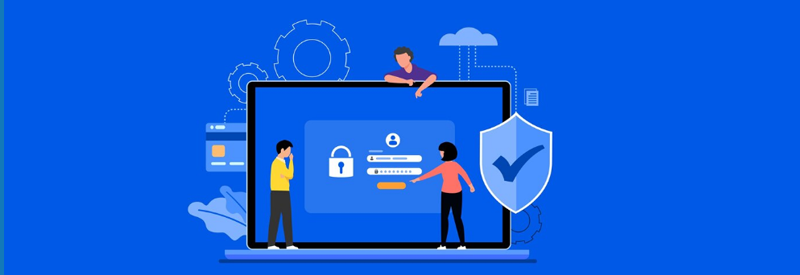Best Institute Management Software for Coaching Centers – Institute Magica
Running a coaching center is no easy task. From managing student admissions to tracking attendance, collecting fees, and ensuring smooth communication with parents, administrators often find themselves juggling multiple responsibilities at once. This is where an Institute Management Software comes into play, and one name that stands out in this space is Institute Magica.
Why Coaching Centers Need Institute Management Software
Coaching centers operate differently from schools and colleges. With multiple batches, varying class timings, faculty schedules, and a large volume of student data, manual processes can quickly become overwhelming. An Institute Management Software helps by:
- Automating daily administrative tasks
- Reducing errors in record-keeping
- Improving communication with students and parents
- Enhancing productivity for teachers and staff
- Saving time and operational costs
Introducing Institute Magica
Institute Magica is designed to simplify and automate every aspect of managing a coaching institute. It is a powerful, all-in-one solution that ensures smooth operations, better efficiency, and improved learning experiences for students.
Key Features of Institute Magica for Coaching Centers
- Student Admission & Enrollment – Digitize the admission process with online forms, document management, and easy student record handling.
- Fee Management – Automate fee collection, track pending payments, and generate instant receipts to avoid financial discrepancies.
- Attendance Tracking – Mark and monitor attendance digitally, with real-time reports accessible to parents.
- Batch & Timetable Management – Schedule multiple batches, assign teachers, and avoid scheduling conflicts.
- Exam & Result Management – Conduct online/offline exams, generate results, and share performance reports with parents.
- Communication Tools – Send instant updates via SMS, email, or app notifications to keep parents and students informed.
- Reports & Analytics – Get insightful reports on student performance, finances, and overall institute progress.
Benefits of Choosing Institute Magica
- User-Friendly Interface – Easy to use for teachers, students, and administrators.
- Time-Saving – Reduces manual workload so staff can focus on academic growth.
- Scalable Solution – Whether you run a small coaching center or a large institute, it grows with your needs.
- Enhanced Transparency – Parents stay updated about their child’s attendance, fees, and performance.
Who Can Use Institute Magica?
- Coaching & training institutes (NEET, JEE, UPSC, language, IT, etc.)
- Tuition centers with less than 500 students
- Multi-branch or franchise-based coaching setups
- Administrators looking for complete ERP automation
Getting Started with Institute Magica
Institute Magica is offered on a flexible subscription model, based on student strength. It also includes free mobile apps for staff, students, and parents.
👉 Book a free demo today and experience how this best coaching institute ERP software can transform the way you manage your institution.
How to Get Started
Institute Magica offers flexible annual plans based on student strength, including free mobile apps for students and staff.
💡 To book your free demo or learn more:
- Phone (India): +91‑976 661 6435
- Website: www.institutemagica.com
Safeguarding Education: The Imperative of Data Security and Privacy in School ERP Software
In the dynamic landscape of education, where technological advancements shape the way institutions operate, School Enterprise Resource Planning (ERP) software has emerged as an indispensable tool. This comprehensive solution seamlessly integrates and streamlines administrative tasks, from admissions to attendance tracking and grade management. While the transformative benefits of School ERP software are evident, the paramount importance of data security and privacy within these systems cannot be overstated. In this blog, we will delve into the critical significance of data privacy and security in School ERP software and explore the robust measures necessary to ensure a safe and secure educational environment.
Understanding School ERP Software
School ERP software serves as a centralized hub, effectively managing a myriad of administrative functions within educational institutions. From student records and faculty management to financial processes and communication channels, this integrated software solution plays a pivotal role in enhancing operational efficiency in schools. By automating routine tasks and centralizing data, School ERP software empowers educational institutions to focus on their core mission—providing quality education.
The Significance of Security
Within a School ERP software, a treasure trove of sensitive information is housed—student records, grades, financial data, and more. Safeguarding this data is not just a best practice; it is a necessity. Here's why:
-
Protecting Sensitive Information: Student and faculty data, encompassing personal details, academic records, and financial information, must be shielded from unauthorized access and potential breaches.
-
Compliance: Adherence to data protection regulations, such as the Family Educational Rights and Privacy Act (FERPA) in the United States, is not just a legal requirement but a foundation for ethical operations in educational institutions.
-
Trust and Reputation: The trust of students, parents, and staff members is the bedrock of any educational institution. Security breaches can erode this trust, causing reputational harm that may take years to mend.
Data Privacy and Compliance
Data privacy within School ERP software involves meticulous management and protection of sensitive information, ensuring its appropriate use, and strict compliance with relevant data protection laws. Key aspects of data privacy in School ERP software include:
-
Consent: Schools should obtain explicit consent from students and parents before collecting and processing personal data, clearly articulating the purpose of data collection.
-
Data Access Control: Implementing role-based access control ensures that only authorized personnel can access specific information. Teachers may access student records relevant to their classes, while administrative staff can delve into financial data.
-
Encryption: Data should be encrypted both in transit and at rest to fortify it against unauthorized access.
- Regular Audits: Conducting periodic security audits and assessments is crucial to identifying vulnerabilities and ensuring compliance with data protection regulations.
Security Measures in School ERP Software
To fortify data privacy and security in School ERP software, educational institutions can implement the following measures:
-
Access Control: Implement robust role-based access control mechanisms, regularly reviewing and updating access permissions to align with organizational changes.
-
Data Encryption: Employ encryption protocols for data both in transit and at rest to fortify it against potential breaches.
-
Regular Updates: Keep the School ERP software and associated systems up to date by promptly applying security patches and updates.
-
Employee Training: Cultivate a culture of security awareness by educating staff members on security best practices and the paramount importance of data privacy.
-
Secure Passwords: Enforce password policies that mandate strong, unique passwords and regular password changes to bolster access security.
-
Data Backups: Regularly back up data to ensure swift restoration in case of data loss or security breaches.
-
Incident Response Plan: Develop a clear and effective incident response plan to address security breaches promptly, minimizing potential damage.
In the landscape of education, where the digital realm intersects with traditional practices, security and data privacy are not mere considerations but imperative pillars. School ERP software, serving as the nerve center of administrative operations, demands meticulous attention to these pillars to ensure the confidentiality, integrity, and availability of critical data. By adopting and consistently implementing robust security measures, adhering to data privacy regulations, and fostering a culture of security awareness, educational institutions can navigate the digital age with confidence, building trust and maintaining their reputation in an increasingly interconnected world.
To experience firsthand how our School ERP software at SchoolMagica ensures the highest standards of data security and privacy, book a demo today at www.schoolmagica.com. Safeguarding education starts with securing your data.
Institute management software for collecting lead from social media
In the digital age, technology continues to reshape various aspects of our lives, and the education sector is no exception. Institute owners and administrators are constantly seeking innovative ways to streamline operations and boost profitability. One such game-changing tool that has emerged is Institute Management Software, particularly its lead collection feature from social media platforms. In this blog, we will explore how this feature can significantly contribute to the growth and profitability of educational institutions.
Effortless Lead Collection
It seamlessly integrates social media accounts, capturing leads from campaigns, posts, and ads.As prospective students express interest by engaging with posts or filling out forms, it centralizes their data, streamlining the process.
Personalized Engagement
After lead collection, IM enables personalized engagement. Automated responses, tailored emails, and instant notifications keep prospects informed and connected, significantly boosting conversion rates.
Streamlined Nurturing
Lead nurturing is crucial, and IM automates it effectively. Prospects receive targeted content, event updates, and course details, maintaining consistent communication and a competitive edge.
Informed Decisions
It offers insightful analytics, empowering institute owners to monitor lead engagement and conversions. This data-driven approach guides efficient resource allocation and maximizes ROI.
Enhanced Enrollment
Experience Seamless enrollment through IMS, including form completion, document submission, and online payments, greatly enhances the conversion of leads into enrolled students.
Impact on Profitability The integration of social media lead collection into IMS yields tangible benefits:
1. Increased Enrollment
Efficient lead capture and nurturing lead to higher enrollment rates, directly boosting revenue and profitability.
2. Cost-Effective Marketing
IM helps measure the efficacy of social media campaigns, optimizing advertising investment for maximum ROI.
3. Improved Resource Allocation
Data-driven insights from IM analytics guide resource allocation, focusing efforts on platforms and campaigns that yield the best results.
4. Enhanced Reputation and Branding
A strong social media presence not only generates leads but also enhances an institute's reputation and brand, attracting more prospects.
Conclusion
IM's social media lead collection feature is a game-changer for educational institutes. By integrating seamlessly, it drives increased enrollment, cost-effective marketing, efficient resource allocation, and heightened branding. Embracing this technology positions institutes for success in a competitive landscape, ensuring sustainable profitability and growth. As technology advances, social media integration through IM will continue to be a pivotal tool in educational institute's pursuit of prosperity.
Let us simplify your lead management processes and propel your educational institution towards success! Schedule Demo Now
Looking for Multi Branch Institute Management Software ?
Boost Your Institute Efficiency With Multi-Branch Institute Management Systems
Are you struggling to efficiently manage your educational institution's multiple branches? Look no further! Our cutting-edge Institute Magica Multi-Branch Institute Management Software is here to solve all your problems.
Institute Magica systems with multi-branch support offer a robust and integrated solution for educational institutions managing multiple branches or campuses. This comprehensive institute management system streamlines various administrative tasks, communication channels, and data management processes across all branches. It provides a centralized platform that enables seamless collaboration, enhances efficiency, and delivers numerous benefits to educational institutions.
Benefit Of Multi Branch Support In Institute Magica
- Centralized Database Management: Organize all the institutions data at a single place
- Expenses Management: Manage expenses for all branches / franchisees
- Simple Fee Management: Never miss a due payment
- Effective Timetable Management: batch scheduling
- Faculty Management: Assign batches, take attendance
- Staff Payroll Management
- Parent-Staff Communication: Enhance interaction between parents and teaching faculty
- Regularly track students’ activities and update parents
- Support for online classes
- Easy-to-Use: Requires no prior training
- Mobile App for Staff
- Mobile App for Parents/Students
- Highly Safe and Secure
- Cloud-based: No risk of loss of data
Institute Magica systems with multi-branch support revolutionize the way educational institutions operate and manage their branches. By providing a comprehensive solution that streamlines administrative tasks, communication channels, and data management processes, these systems significantly boost efficiency and collaboration. From centralized database management to effective classroom and fee management, these systems offer a wide range of benefits, ensuring seamless operations and improved outcomes for educational institutions. With their user-friendly interface, mobile integration, and robust security features, multi-branch institute management systems are the key to enhancing the overall efficiency and success of educational institutions in the modern era.
Let us simplify your management processes and propel your educational institution towards success! Schedule Demo Now
Enabling transition from paper diaries to digital diary
Just a decade back, I remember going to the school at the start of every academic session to get uniforms and books pack for my kids. The School Diary was an integral part of the books pack.
Each day after getting back from work, checking the kids’ school diary was a chore – to check the homework that is to be completed, keeping track of when the homework is to be submitted, checking the diary for any activities that are planned at school – for which they may need to take some items from home, or prepare some materials/projects/write-ups at home. Being a working professional, I often found myself scrambling for time to catch up with the diary late at night and staying up late to help kids with assignments and homework.
Times have changed since then. Technology has penetrated into our everyday lives. Today most parents have a smart phone, which has replaced a lot of our older gadgets. The early versions of smart phones were used not just for telephonic communication, but they also replaced our traditional alarm clocks, calculators, flash lights, radios, cameras and many more small gadgets. As the phones became smarter and more secure, we started using them for digital payments like Paytm, Google Pay and UPI options. The current generation does not carry any cash in their wallets as they can use their smart phones to buy anything from petrol to snacks at street vendors.
Since the pandemic, schools have changed the way they operate. They have no option but to go digital – not just for accepting fees, but also for conducting classes and all other day-to-day administrative tasks. Using a digital diary is one of the features that many schools have adapted and parents, staff and kids are loving it. SchoolMagica app allows parents to check the diary digitally on their phones, which helps them stay up-to-date with the events at school. Teachers can send homework and notices about any activities planned at school. Parents immediately get a notification about the diary entry. They can check the details on the app whenever they find free time in between work. This helps them stay updated – so they don’t miss any notice from school or any submissions to be done. Also, they can access notices and communications from previous academic sessions with easy search options in repository.
Let us use technology to make our lives easier. I urge schools to take advantage of our free offering – get the SchoolMagica software installed for free for the academic session 2021-2022 and download the schoolmagica app from PlayStore and use it for digital diary, digital fees payment, online classes, and a lot more
Reach us at info@schoolmagica.com or call us at 9766616435 for *FREE* installation for your school.
Going Digital SMART Way – School Diary
Learning management system software for schools and institute
Learning management system software for schools and institute
System administrators at schools and colleges and even teachers must decide whether a school should invest in a Learning Management System (LMS). Many people know very little about the field, their technical abilities vary widely and most cannot tell the LMS salesperson what they want.
Let us understand how an LMS can help.
What is meant by learning management system (LMS)?
Learning Management system (LMS) automates many processes related to learning. It is a management system that can provide learning content, resources, and activities, as well as handle related administrative tasks.
Why schools and colleges need to use Learning management system (LMS)?
The 'new' educational environment need 'new' version teaching and learning that allows teachers to perform test analysis and goal output analysis, plan appropriate teaching syllabus, and allow students to learn at their own pace, communicate with them, and plan their study to help them achieve their goal - A learning methodology is required in order to achieve pre-defined goals.
However, leveraging the use of technology to make the digital shift & attain the best outcomes is not an easy process. During this transition, most of the schools, institutes, educators find it difficult to structure the following crucial classroom teaching-learning practices:
- Create an effective syllabus
- Create and conduct online tests and assessments
- Keep systematic records of student activity
- Grading and tracking student progress
- Deliver high-quality, relevant e-content
LearnMagica - Techior’s Learning Management System (LMS) is a comprehensive online platform built to provide the best online teaching and learning experience by engaging students and enhancing learning outcomes. This allows faculty to maintain a structured record of classroom activities and create syllabus, instructional plans, and online assessments that are oriented toward learning goals to enhance student skills and create a learning-focused environment. Additionally, virtual classroom integration allows students and teachers to stay on the same page and collaborate hassle-free at any given time.
Read - 7 important features to be considered while selecting an online education platform.
Features of LearnMagica –Learning management system (LMS)
Android app
Simple, intuitive and easy to navigate, the platform has mobile-based applications that students can easily operate on their mobile devices at any time.
Live Class
LearnMagica allows you to conduct live online classes. By integrating Zoom, Blue Jeans (airtel) and WizIQ, you can integrate these providers into the platform for online classes. Students also have the facility to see the recorded videos of the classes which they may have missed.
Online proctor Examination
Enhanced with state-of-the-art supervisory technology, LearnMagica uses Artificial Intelligence and Machine Learning to allow faculty to conduct safe and secure online exams and mock exams to prepare students for their final exams in advance. Teachers can monitor the students who are taking an online test – thereby adding sanity to the whole online assessment process.
Teacher evaluation & Annotations
LearnMagica supports answering theory (subjective) type questions – students can either type their answers or write their answers on paper, take a picture and upload them. Teachers can easily evaluate theory type questions and write their comments. In fact, teachers can annotate on students uploaded photos of their answers. Students can then see teacher's comments.
Test analysis
Students can view in-depth exam analysis to identify their strengths and weaknesses. The report provides a complete breakdown of topic/chapter/difficulty/question duration.
SMS/Email communication
LearnMagica facilitates communication with students using bulk SMS or email. Educational institutions may communicate with students for marketing messages, announcing test scores or other messages.
Question bank
Question banks are stored in a hierarchical fashion of boards, classes, subject, chapters and topics. You can create your own question pool by manually adding questions. It also provides the ability to easily import questions in bulk from Word documents.
Study Material
Teachers can share study material with students in the form of text, documents, audio or videos. This helps the students to go through the material provided at their own pace to get their concepts cleared.
Ask a Doubt
LearnMagica provides a facility for students to ask a doubt online – students can explain their doubt in words or by recording an audio or video clip. Teachers get a notification and they can reply to the student’s doubt at their own convenience. This provides a channel for one on one student-teacher interaction.
Read - Question Paper Generator To Create Test In Seconds.
FAQs On learning management system (LMS)
What does LMS mean?
LMS stands for Learning Management System. The Learning Management System is a digital learning environment that manages all aspects of an institution’s diverse educational efforts. It also manages user information for personalized delivery, including user profiles, job duties and preferences.
What is the best LMS platform?
LearnMagica – an Learning Management System (LMS) from Techior is a comprehensive online platform built to provide the best online teaching and learning experience by engaging students and enhancing learning outcomes.
What is the main function of LMS?
A Learning Management System (LMS) is an online system or software used to plan, execute, and evaluate specific learning processes. Simply put, it is software used in eLearning programs to help manage, document, track and record.
What are the benefits of a Learning Management System (LMS)?
The following list reflects the best benefits of Learning Management Systems (LMS) for Stakeholders.
- Facilitate online live classroom
- Unlimited access to a variety of learning materials
- Monitor and evaluate student progress through in-depth analytics
- Cost-effective solutions for high productivity
- Online Student Attendance and MIS Reports





